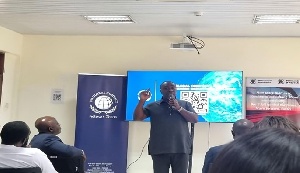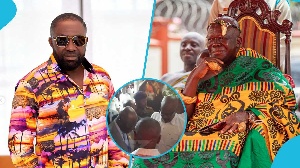Business News of Thursday, 8 May 2025
Source: www.ghanawebbers.com
US$43bn needed annually to meet 2030 SDGs - UN economist
Ghana needs to raise about US$43 billion annually from 2020 to 2030. This funding is crucial to meet the Sustainable Development Goals (SDGs) by the deadline.
The SDGs are 17 global objectives adopted by the UN in 2015. They aim to tackle major development challenges and promote sustainability. Key goals include eradicating poverty, ensuring good health, and achieving gender equity.
Countries in the global north, like Finland and Sweden, have made significant progress. However, nations in the global south face many challenges. Climate change and lack of funding hinder their efforts.
To support Ghana's sustainable development, a Business Executives Dialogue was held in Accra. The event focused on financing Ghana’s future and enhancing private sector contributions.
Stakeholders from various sectors discussed sustainable finance opportunities and challenges. Mr. Peter Aidoo expressed concern over illicit financial flows from Ghana. He noted that these funds could help close the funding gap.
Ghana loses about US$1.44 billion annually due to these flows. In three decades, Africa has lost over US$1.4 trillion this way. Between 2003 and 2012, Sub-Saharan Africa lost US$528.9 billion.
From 2022 to 2011, Ghana alone lost US$14.39 billion to illicit flows. Despite this issue, Mr. Aidoo praised the government for its commitment to reporting on the Voluntary National Review (VNR).
He recommended calculating district and regional GDPs for better SDG assessment. A comprehensive report on SDGs is essential for tracking progress.
After President Trump ended USAID funding, Ghana faced a loss of about US$150 million in critical aid. An economic advisor suggested budget adjustments to compensate for this loss.
Without changes, vital health supplies could be severely impacted since USAID funded them previously. The UN Economist acknowledged government efforts with the IMF program but stressed fixing financing gaps is necessary.
The UN has proposed several recommendations for improvement: reviewing policies to attract investments and enhancing MSME capacities for bankability are key steps.
The economic advisor urged prioritizing food systems, energy transition, education, decent work, social protection, climate action, and biodiversity to meet SDGs by 2030.
Investing in these areas will stimulate growth across all sectors of the economy.











